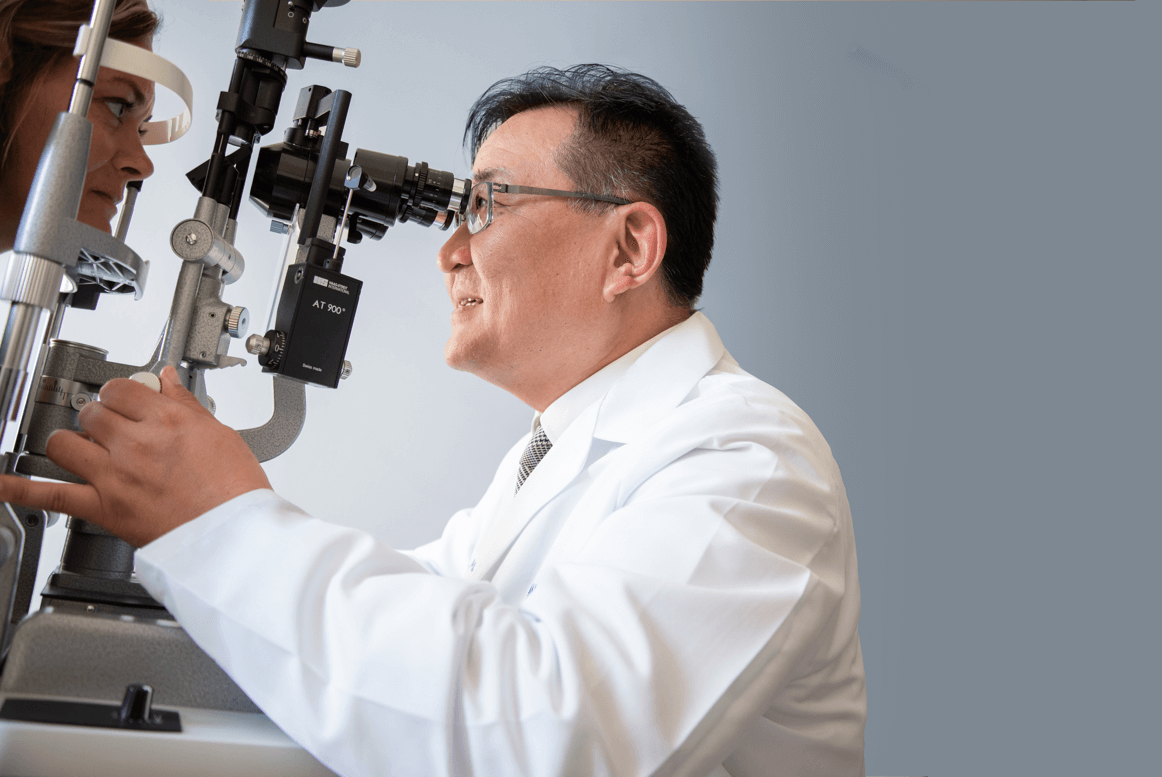Knowing when to see a retina specialist is important. This is because various types of retina disease are progressive, meaning they may get worse the longer you go without evaluation and treatment. Untreated retinal conditions may result in permanent damage to the eye and, in severe cases, partial or total loss of vision.
If you’re not familiar with the signs of retinal disease, it may be difficult to know when it’s time to see an eye care professional. Below, we outline some of the key signs that may alert you to see a retina specialist, including their role in safeguarding your vision and the health of your eye.

So, what is a retina specialist? What do they treat? A retina specialist, also sometimes referred to as a vitreoretinal specialist, is a medical doctor who evaluates and treats diseases of the retina. This is the part of the eye responsible for converting light into electrical signals for the brain to process and turn into images. It is located at the back of the eye and is a key component of your vision. A good analogy is the eye is like a camera, and the retina is like the film of the camera.
Common conditions that warrant a visit to a retina specialist include age-related macular degeneration (AMD), retinal detachment, retinal vein occlusion (RVO), and diabetic retinopathy. These and other retina conditions can be caused by age, and other chronic conditions such as diabetes or high blood pressure (hypertension), among other causes such as nearsightedness (myopia). A family history of retina disease is also a known risk factor for certain conditions, including AMD and retinal detachment.
As a medical doctor who specializes in retina disorders, a retina specialist is primarily responsible for diagnosing and treating conditions of the retina. The retina services typically involve a dilated fundus examination, retinal imaging, and procedures including lasers, surgery, or delivery of medications to the eye to treat various retina conditions.
Now, you may be wondering what a retina specialist does on a day-to-day basis. Each retina patient may have unique circumstances that determine the frequency of visits and the type of therapy they may need. Retina diagnostic and treatment procedures are tailored to individual patients based on their symptoms, illness, and the progression of the diagnosed retina disease. A skilled retina specialist provides top-level care, no matter the individual case, with procedural techniques that include retina surgery and injections.
It’s worth noting that eye care is collaborative in nature, and retina specialists generally work alongside other eye care professionals to take care of their patients. This comprehensive approach to patient well-being ensures everyone gets the level of care they need. It also helps address any other eye issues that may be going on alongside (or as a result of) retina disease. For instance, retina specialists typically do not perform cataract surgery, and if a cataract were to develop, you may be referred to an eye care provider who regularly performs cataract surgery.
The diseases of the retina are all quite distinct despite being localized to such a small part of the eye. That being said, they may all present with some similar signs or symptoms, especially in the early stages of illness. These include:
If you or a loved one are experiencing one or more of these symptoms, it is important that you see a retina specialist as soon as possible. This is true for persistent eye problems, as well as the sudden onset of symptoms. A consultation with a retina specialist is the first step in figuring out exactly what is going on and could make the difference between your symptoms becoming more serious or stopping a retina illness in its tracks.
New therapies are constantly being developed. In 2023, we now have a treatment for advanced dry age-related macular degeneration or geographic atrophy that was not available previously. Our practice is actively involved in clinical trials which you may be a suitable candidate for after discussion with your retinal specialist.
Vision loss from retina disease is often preventable or treatable so long as you see a retina specialist at the early signs of illness. Coupled with proactive eye care – including wearing eye protection during certain risky activities and getting regular eye check-ups with a general eye care provider – you can protect your eyesight for the long haul.
If you notice any concerning eye symptoms, our team at Mid Atlantic Retina is here to help. We offer world-class retina care at clinics located throughout Pennsylvania, Delaware, and New Jersey and are committed to providing all of our patients with the latest in diagnostics and treatments. If you think that it’s time to see a retina specialist, please contact us to schedule a consultation.